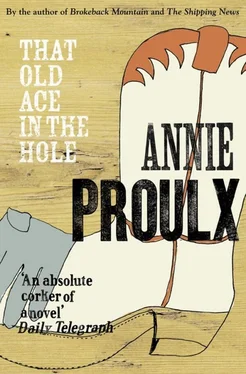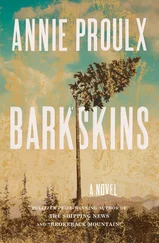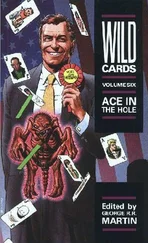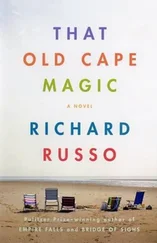“Do I have tuberculosis?”
“I think not. You have a sensitivity to vapors and dampness. I have no hesitation in recommending you to the Texas high ground. There is, in fact, a very good medical man in Woolybucket – oh, these Texas town names – who has cared for and cured a number of respiratory cases far worse than yours. You can seek him out with confidence. D. F. Mugg, M.D., keenly interested in the malaises of the human body and good horse trader as well.”
“I have no idea what I might do out there to make my living.”
“I understand it is a fair country for farming, but even better for the raising of cattle. Many men, especially young men such as yourself, are flocking to the region seeking their fortunes through the rich grass and pure water. Once your lungs have healed in the healthful air, as I have every confidence they will do, I do not doubt that you will be yo-ho-hoing and riding at breakneck speed across the flower-spangled highlands. You might go farther north to Wyoming Territory or Montana, but those environs suffer deadly winter chill and blizzard snows. At least Texas has warmth.”
Later, Fronk reflected bitterly on those words. Yet while in a state of blissful ignorance he put his affairs in order and converted most of his worldly goods into cash ($432), argued with his father, who still cherished dreams that his son would come to the watchmaker’s bench. After three days of wrangling the father understood the son’s departure was inevitable, and, in late April of 1878, Martin Fronk climbed onto a huffing, west-bound train accompanied by a valise and a trunk packed with such necessaries as an axe, some good hemp rope and fourteen back issues of the Louisiana Go-Steady , an occasional illustrated paper of incendiary political views and attractive engravings of little-known foreign regions, a class in which Martin mentally placed Texas, high ground and low. As well he had put a small sack of yams in the trunk and a paper packet of coffee beans wrapped and tied by his younger sister, Lighty
When the train stopped for an hour in a town that seemed to consist of one large emporium and swarms of cattle, he got out to stretch his legs, entered the store and purchased three cans of oysters, one of which he opened and ate on the platform, the other two going into his valise. The train started with a terrific jerk, then settled into a monotonous and swaying side-to-side motion. In the issue of the Go-Steady he was perusing, a timely article on cattle raising had his rapt attention, and he barely noticed the extraordinary span of the bridge over which the train was passing, 840 feet in length, the conductor announced.
Cattle, he read, needed no care nor cosseting on the Texas plains. One turned them out and let them graze as they would, then, once or twice a year, rounded them up with the help of the children of the region (thus he interpreted “cowboys”) and drove the beasts to market in exchange for money. So plentiful were ownerless cows on the Texas plains that a poor but ambitious man could make his fortune in one or two years. Coughing lightly, he turned the page and read that a cow valued in Texas at five or ten dollars would sell for thirty dollars in Kansas City. The article described the economics of driving three thousand cows from Texas to a Kansas railhead. The eleven men needed to drive them, including a cook, each cost thirty dollars per month – that was $330. Another hundred went to the trail boss, another hundred to provisions: that made $530 a month in costs. The cows could bring $90,000. Suddenly, his future seemed clear.
The article went on to explain that the most efficient and inexpensive procedure was to arrange for the services of a contract drover rather than use one’s own cowboys, who were needed on the home ranch to care for the next cow crop. Or, in yet another scenario, the article presented the example of a rancher with six strong sons who managed the trail drive with animals from the ranch, sons who were paid little or nothing, for the ranch would come to them in the sweet by-and-by. But, Martin thought, one did not find six strong sons on alder bushes. He supposed it would take decades, even if he had a wife, to grow strong and cattle-minded sons. As he read on he understood that contract drovers themselves could make fortunes, and eventually purchase and stock their own cattle ranches. There was an example of one who made $50,000 in a single season driving other men’s cattle north. He fell into a pleasant reverie. If his health improved rapidly he might become a drover for a few years, then set up as a rancher, he and his six strong sons. One thing he understood clearly – there were fabulous profits in cattle if you were a stem-winder.
The train tracks did not extend to Woolybucket, but ended a brisk day’s ride away at a place called Twospot. There was a rough stable behind the station where he persuaded a mangy oldster to sell him a secondhand Dearborn buggy and a grey horse with ogre eyes, loaded his trunk and valise into the buggy and started west, the general direction of Woolybucket. On the train, the conductor, who had seemed to be as well-informed in the affairs of the MKT Railroad as a company director, had told him it was a sure thing the line was going to be extended to Woolybucket within a year, that Woolybucket was to become a major cattle-shipping point, that he, Martin Fronk, would be smart to look for land in the vicinity of this metropolis-to-be.
He twice crossed small streams, the Woolybucket and Rogers Creeks, both lined with willows and cottonwood, offering shade and rest to the traveler. Indeed, he saw a small party in a camp but as they looked, from a distance, like Indians, he did not care to approach. The conductor had mentioned a few peculiar habits of the Indians, especially the Comanches, who were lacking in common manners and sometimes exhibited markedly abrupt behavior.
“They got ahold of a clock salesman last year, cut open his stomach, pulled out his guts a ways, tied em to the horn of his saddle and whacked the horse. I believe they cut off different parts of him for souvenirs, too. Weren’t much left but the general idea of what he’d been. Smart if you stay away from them.”
A man in the seat across the aisle said, “Hell, that weren’t the worst. Tell him what they done to Dave Dudley at Adobe Walls. You don’t know? Well, I’ll tell him. They got Dave Dudley who was shootin buffler at the mouth a Red Deer Creek. They carved out one a his balls, put it in his hand and tied his hand to a stake set out in front a him so he would have to look at it and think about what was happenin. Then they cut the hole in his gut and driv a stake down through into the ground, pounded it in with a axe. Used one a his own buffler pegs. And they finished up with scalpin him four ways from last Tuesday, ever hair on his head tooken. That’s the kind we got here. They run out most a them now but not all.”
By late afternoon the sky was a deep khaki color in the southwest though that had little significance for him. He was tired from the hot, jolting hours in the Dearborn and wanted more than anything to sink to his chin in cold water. He was thirsty, had long ago drained the canteen of water. Yet he feared going down to the river where there might be Indians. Now and then he drew a deep breath, testing to see if the high, dry air was making a difference in his breathing. It seemed to him to be easier and perhaps more comfortable. He could not really tell. The gloomy sky ahead cracked open with lightning and he cut toward a motte of trees, Indians or not, wanting some shelter.
There were no Indians in the shady grove, but a cleared area and trampled vegetation showed it had been occupied in the last twenty-four hours by someone. He made a tiny fire and laid two yams in the coals to bake while he washed the dust from his burning face. There was a small pool, somewhat murky. He cupped his hands and drank the sulfurous water. A rumble of thunder shook the ground though the air was dead still. A soft explosion from the fire reminded him that he had forgotten to pierce the potatoes and one had burst. It was a dead loss. He stabbed his knife into the other, still whole (he thought of suffering Dave Dudley and the wretched clock salesman, for the yam resembled a yellow belly), raked more coals on top of it and filled the canteen at the pool. He unharnessed the grey, rubbed it down, fed and watered it, spread his blanket on the ground under the Dearborn. When the surviving potato was done he ate it hot and without salt, opened a second can of oysters with his knife, swallowed them, drank again from the pool, rinsed the oyster can and put it aside to use as a coffee pot in the morning, crawled under the wagon ready to sleep although it was still daylight, yanking his blanket over his head to thwart the mosquitoes. A tiny fresh breeze slid along the ground, as sweet and cool as chilled water. The sky had turned purple-black, riven with lightning that showed low-scudding clouds moving at right angles to a heavier mass above. The clouds were ragged and wild. The little breeze quickened, became a small wind, strong enough to drive off the stinging pests, lifted the corner of his blanket. It was sharply colder.
Читать дальше












